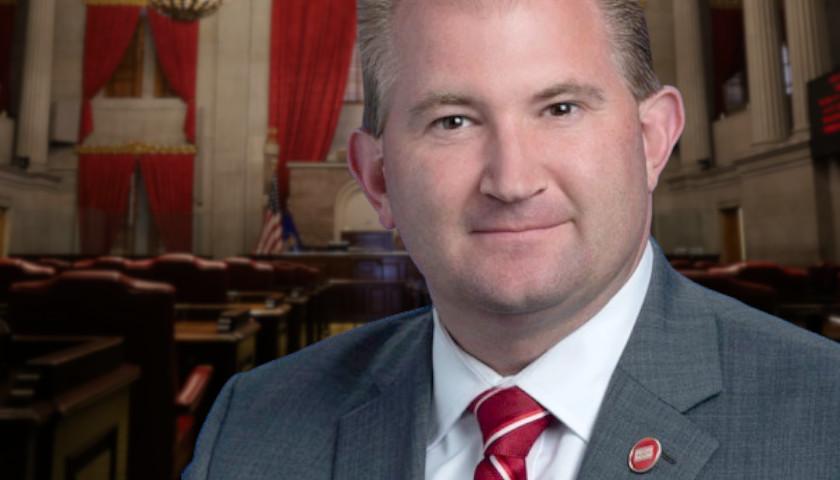The Sixth U.S. Circuit Court of Appeals on Wednesday rejected the State of Tennessee’s appeal in which the General Assembly sought to ban the federal government from forcing Tennessee to accept and fund a refugee resettlement program.
A copy of the court’s ruling is available here.
A federal judge in March 2018 dismissed Tennessee’s lawsuit against the federal government’s resettlement of refugees in the state on 10th amendment grounds. The Tennessee General Assembly in May 2018 authorized the Thomas More Law Center to file an appeal on its behalf, The Tennessee Star reported. The law center did not charge for the service.
When Diane Black was running for the governor’s office last year, she announced her support for the appeal.
The General Assembly first retained Thomas More in 2017 to file a federal lawsuit against the U.S. State Department, which oversees the refugee resettlement program, the law center said in a press release.
In its decision Wednesday, the Sixth Circuit “side-stepped the substantive issues in a ruling Wednesday that held the General Assembly did not have ‘standing’ to challenge the federal program and dismissed the state’s case. Thus, the court never decided whether the federal refugee resettlement program violated the 10th Amendment to the U.S. Constitution,” the Thomas More Law Center said in a press release.
Richard Thompson, president and chief counsel of Thomas More, said the center is consulting with attorney John Bursch, the lawyer who handled the oral argument in the Sixth Circuit, regarding the next steps to advance the state’s challenge. Options include filing for a rehearing before the Sixth Circuit judges or directly petitioning the U.S. Supreme Court to review the case.
Thompson said that regardless of which option Tennessee chooses, the state will not incur any legal expenses. He refuted as “totally inaccurate” a claim by Lisa Sherman-Nikolaus, policy director for the Tennessee Immigrant and Refugee Rights Coalition, who claimed state taxpayers were funding the lawsuit.
“We never charged the state of Tennessee one cent,” said Thompson, who explained that the law center he co-founded in 1998 operates on charitable donations as a 501(c)(3) organization. “The retainer agreement signed with the General Assembly indicates that it will not be responsible for payment of fees to the law center and that the law center will pay all costs ordinarily associated with the litigation.”
During the term of then-Gov. Phil Bredesen in 2005, about 200,000 of the sickest-and thus costliest to cover-Tennesseans were dropped from TennCare even while refugee resettlement contractors were helping enroll new refugees into TennCare, The Star reported in August 2018.
In 2007, Bredesen withdrew from the federal refugee resettlement program, which is administered by the U.S. State Department in cooperation, Thomas More’s press release said. The federal government kept sending refugees.
The 10th Amendment is the main legal premise behind the American concept of federalism, stating that all those powers not expressly given to the federal government rest solely with the states, Thomas More said.
“The 10th Amendment undergirds our entire system of states’ rights and serves as a check on federal overreach,” Thompson said. “Our Founding Fathers knew that without a strong system of checks and balances, we could not call ourselves a free and sovereign people.”
“If the program were entirely funded by federal tax dollars, that would be one thing, but this is a program that sucks state and county tax dollars out of taxpayer pockets for a program that is one-hundred percent federal in nature,” Thompson said. “Counties face overcrowded schools and are forced to invest in new brick and mortar projects, while courts, jails and hospitals are also being forced to provide services to the refugees.”
The law center said:
According to the U.S. Department of Health and Human Services statistics, nearly 70 percent of refugees from North Africa and the Middle East remain on at least one state-supported welfare program even after five years in the United States. Public schools are forced to accommodate the various linguistic and cultural challenges faced by Third World students.
The problem gets compounded by the State Department’s family reunification program, which allows refugees’ family members to follow them to the United States.
Then there is the problem of vetting. It’s almost impossible to weed out bad apples, given that many come as children and get radicalized years after they arrive on U.S. shores.
Take the case of Muhammad Youssef Abdulazeez. He came to America from Kuwait as a young boy. He graduated high school, where he was a popular member of the wrestling team, then went on to earn an engineering degree from the University of Tennessee at Chattanooga.
In the summer of 2015, Abdulazeez, then 23, opened fire at a Navy recruitment center and a reserve center in Chattanooga. Abdulazeez, armed with an AK-47 rifle and a 9mm handgun, was shot and killed by police, but only after he had killed four marines and a sailor, while wounding a recruiter and a police officer.
“What we have is a clear case of heavy-handed federal power being injected into Tennessee’s political process, commandeering state tax funds for an unpopular federal program that serves no state interest whatsoever.”
“This arrangement displaces Tennessee’s constitutionally mandated funding prerogatives and appropriations process,” Thompson said.
Several states, including Alabama and Texas, filed unsuccessful suits against the federal refugee program, but the Tennessee case is the only one that attacks the program at its root.
While other states sought a greater consultation role with the federal authorities pouring refugees into their cities, the Tennessee case questions the right of the feds to force a state to participate in the resettlement program at all.
Since the Refugee Act of 1980 was signed by President Jimmy Carter, more than 3 million refugees have been resettled in some 300 U.S. cities and towns. Entire cities and congressional districts have been quietly transformed by this program.
Congresswoman Ilhan Omar, D-Minn., is a product of the refugee program. She entered the U.S. as a child refugee and grew up to become the first Muslim female elected to Congress in 2018. She would not have been elected were it not for the fact that more than 75,000 Somalis have been resettled in her district since 1991, to the point where the Cedar Riverside area of Minneapolis is now known as “Little Mogadishu.”
Minnesota has also been named by the FBI as the terror-recruitment capital of America, with more than 50 Somalis having left the state to join terrorist organizations including al-Qaida, al-Shabab and ISIS. Dozens of others have been arrested on charges of providing material support to overseas terrorists. There have been at least two cases of Somali-Americans carrying out knife attacks at Minnesota malls.
– – –
Jason M. Reynolds has more than 20 years’ experience as a journalist at outlets of all sizes.






[…] The two-judge panel rejected the state’s challenge in July, as The Tennessee Star previously reported. […]
[…] The two-judge panel rejected the state’s challenge in July, as The Tennessee Star previously reported. […]
More lunacy from the bench.
Are you kidding me, “the General Assembly did not have ‘standing’ “! So the Judge is basically saying, “citizens don’t have a say in what goes on!” Our General Assembly IS our “representative” in this representative form of government. Does he expect that each and every one of us hard working, tax paying citizens must file a lawsuit in order to have “standing” and to protect our neighborhood?